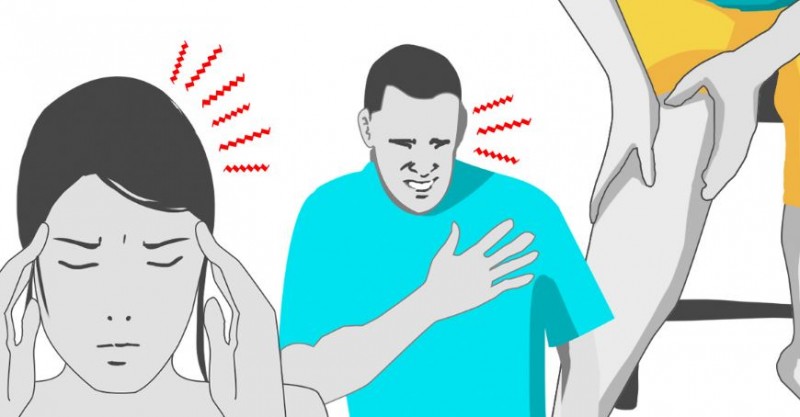
Our body's optimal function relies heavily on receiving essential nutrients from our diet. When these nutrients are lacking, our body often sends out signals through various symptoms. Recognizing these signs early can prevent potential health issues associated with deficiencies.
Signs and Symptoms of Common Nutrient Deficiencies:
Persistent Fatigue and Cold Sensitivity:
Feeling constantly fatigued or unusually cold can indicate several deficiencies. While occasional fatigue is normal, persistent feelings of exhaustion and coldness might point to iron deficiency—an essential mineral crucial for oxygen transport in the blood. Iron deficiency can lead to anemia, characterized by fatigue and pale skin.
Muscle Pain and Cramps:
If you experience frequent muscle pain or cramps, especially during minimal physical activity, it could be a sign of magnesium deficiency. Magnesium is vital for muscle function and relaxation. Low levels of magnesium can cause muscle tightness, spasms, and cramps.
Tingling Sensations in Hands and Feet:
Tingling sensations or feelings like ants crawling on your skin in the hands and feet might indicate a deficiency in vitamin B12. This vitamin is essential for nerve function, and its deficiency can lead to neurological symptoms such as tingling, numbness, and even difficulty walking.
Bone and Joint Pain:
Chronic pain in the bones and joints, along with frequent fractures and slow wound healing, can signal a deficiency in vitamin D. Vitamin D is crucial for calcium absorption and bone health. Low levels of this vitamin can lead to conditions like osteoporosis and osteomalacia.
Intolerance to Cold Temperatures:
Feeling excessively cold compared to others around you might be a sign of iodine deficiency. Iodine is essential for thyroid hormone production, which regulates metabolism and body temperature. Low iodine levels can result in hypothyroidism, characterized by intolerance to cold, weight gain, and fatigue.
Taking Action:
Recognizing these symptoms is the first step towards addressing potential nutrient deficiencies. If you experience any of these signs regularly, consider the following actions:
Consult a Healthcare Professional: A doctor or nutritionist can conduct tests to identify specific deficiencies and recommend appropriate treatment.
Dietary Adjustments: Incorporate nutrient-rich foods into your diet. For instance, iron-rich foods like lean meats, spinach, and beans can help combat iron deficiency.
Supplementation: In some cases, supplements may be necessary to restore nutrient levels to normal ranges. However, it's essential to consult a healthcare professional before starting any supplements.
Lifestyle Changes: Ensure adequate exposure to sunlight for vitamin D synthesis and consider iodized salt or iodine-rich foods for iodine intake.
Ignoring signs of nutrient deficiencies can lead to serious health complications over time. By understanding these symptoms and taking proactive steps to address them through proper nutrition and medical guidance, you can maintain optimal health and well-being.
Remember, your body communicates its needs through these subtle signals—listening to them and responding promptly can make a significant difference in your overall health.
Say Goodbye to Bad Breath: Easy Remedies for Fresh Breath
Beat the Heat with a Delicious and Healthy Drink: Mix Fruit Raita Recipe
Debunking the Myth: Saffron Consumption in Pregnancy Does Not Determine Baby's Skin Tone